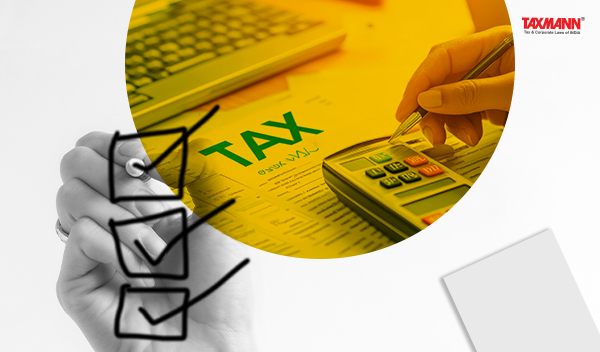CBDT Issued Revised Guidelines for Compounding of Offences Under Income Tax Act
- Blog|News|Income Tax|
- 2 Min Read
- By Taxmann
- |
- Last Updated on 19 October, 2024

Notification F.No.285/0812014-IT(lnv.V)163, dated 17-10-2024
In line with the Hon’ble Finance Minister’s budget announcement on simplifying and rationalising the compounding procedure, the Central Board of Direct Taxes (CBDT) issued new Guidelines for Compounding of Offences under the Income-tax Act, 1961 (the Act).
These guidelines have been issued in supersession of all previously issued guidelines for the compounding of offences, which are as follows:
- Guidelines issued via letter dated 16.05.2008.
- Guidelines issued via letter dated 23.12.2014.
- Guidelines issued via letter dated 14.06.2019.
- Guidelines issued via letter dated 16.09.2022.
The new guidelines have been simplified by, among other changes, eliminating the categorization of offences, removing the restriction on the number of applications, allowing fresh applications upon rectifying defects (which was previously not allowed), permitting the compounding of offences under sections 275A and 276B of the Act, and removing the 36-month time limit for filing applications from the date of the complaint.
Additionally, the new guidelines permit companies and HUFs to file applications without the main accused. Both the main and co-accused can now have their offences compounded upon payment of the relevant charges by either party.
Moreover, compounding charges have been rationalized by abolishing interest on delayed payments and reducing the rates for offences, such as TDS defaults, to a uniform rate of 1.5% per month. The calculation of compounding charges for non-filing of returns has been simplified, and separate compounding fees for co-accused have been removed.
The new guidelines will apply to all applications submitted after issuance of the guidelines, i.e., 17-10-2024, and to applications submitted under earlier guidelines that have not yet been disposed of yet.
The compounding application can be filed suo-moto at any time after the offences occur, regardless of whether it has come to the Department’s notice. It may also be submitted after prosecution proceedings have commenced.
For applications pending as of 17-10-2024, if compounding charges have already been determined and communicated but remain unpaid in full, the charges shall be recalculated if they are lower under these Guidelines. However, no refunds or adjustments against other dues will be provided if the higher charges determined under the previous Guidelines have already been paid.
Further, a person may refile an application under the new guidelines if his previous application was rejected due to curable defects, such as:
- Non-payment of outstanding tax, interest, penalty, or related sums,
- Filing the application in the incorrect format,
- Mentioning the wrong assessment year/financial year or section under which the offence has been committed,
- Non-payment or short payment of compounding charges,
- Failure to submit an undertaking regarding the withdrawal of appeals, etc.
However, applications rejected on merits by the Competent Authority in the past will not be reconsidered under the new guidelines.
Click Here To Read The Full Notification
Disclaimer: The content/information published on the website is only for general information of the user and shall not be construed as legal advice. While the Taxmann has exercised reasonable efforts to ensure the veracity of information/content published, Taxmann shall be under no liability in any manner whatsoever for incorrect information, if any.

Taxmann Publications has a dedicated in-house Research & Editorial Team. This team consists of a team of Chartered Accountants, Company Secretaries, and Lawyers. This team works under the guidance and supervision of editor-in-chief Mr Rakesh Bhargava.
The Research and Editorial Team is responsible for developing reliable and accurate content for the readers. The team follows the six-sigma approach to achieve the benchmark of zero error in its publications and research platforms. The team ensures that the following publication guidelines are thoroughly followed while developing the content:
- The statutory material is obtained only from the authorized and reliable sources
- All the latest developments in the judicial and legislative fields are covered
- Prepare the analytical write-ups on current, controversial, and important issues to help the readers to understand the concept and its implications
- Every content published by Taxmann is complete, accurate and lucid
- All evidence-based statements are supported with proper reference to Section, Circular No., Notification No. or citations
- The golden rules of grammar, style and consistency are thoroughly followed
- Font and size that’s easy to read and remain consistent across all imprint and digital publications are applied



 CA | CS | CMA
CA | CS | CMA
